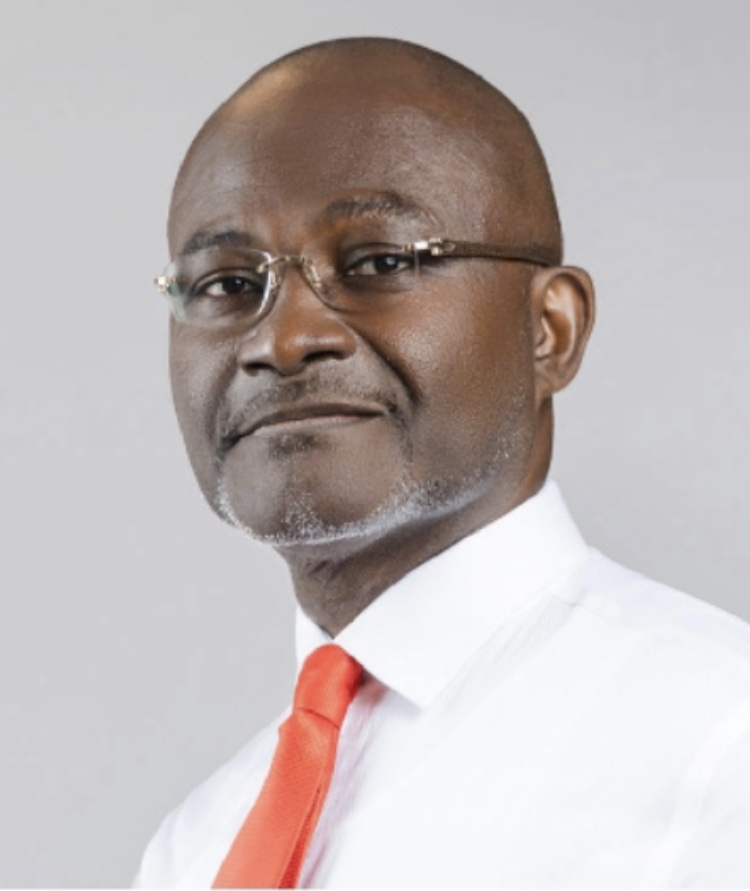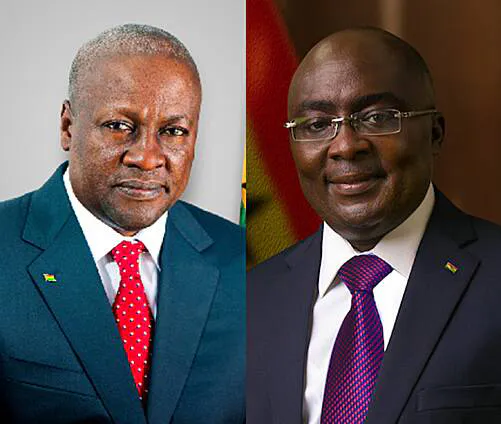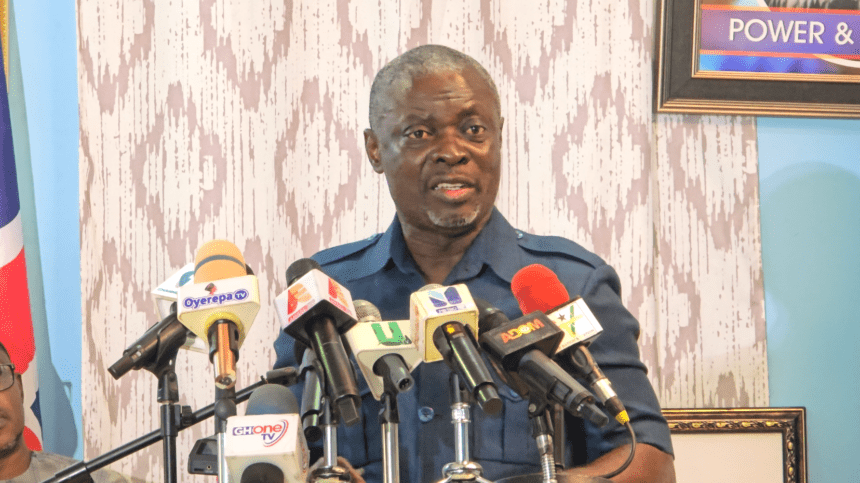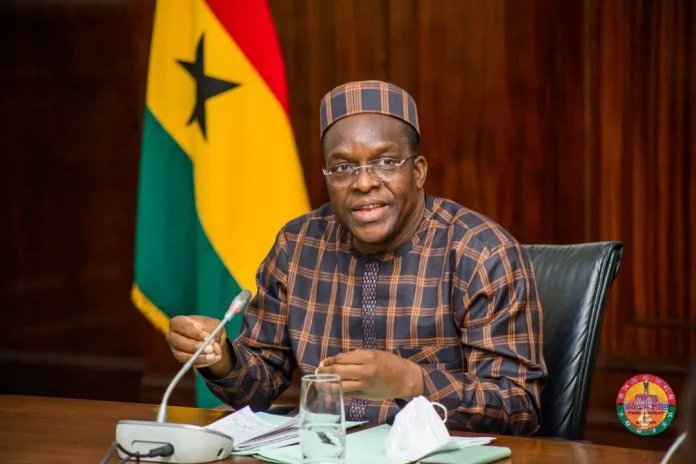Politics
NPP Presidential Primary: Kennedy Agyapong has all the right answers on Ghana, but can he truly deliver as President?
Published
1 year agoon
By
Melody 911FM
Member of Parliament for Assin Central Constituency, Kennedy Agyapong.
As per the prognosis of Western-oriented experts and theorists, democracy and freedom of choice are expected to guarantee the well-being of the general citizenry and promote economic growth and development for the state.
Going by that definition, the vast majority of Ghanaians should by now have found themselves out of the morass of excruciating poverty, economic inequality, nepotism and widespread corruption, having enjoyed democracy and freedom of choice for over a generation now.
This gap between the theory and the reality in Ghana in the last thirty years undoubtedly brings to the fore some excitement among many Ghanaians when they listen to the political messages of Kennedy Ohene Agyapong in his campaign trail for election to lead the ruling New Patriotic Party (NPP) for the 2024 presidential elections.
To sum up, Kennedy Agyapong has effectively distanced himself from the Akufo-Addo-Bawumia government he tirelessly worked to enthrone in 2016 and with revolutionary rhetoric (some say electoral populism) is promising an unprecedented economic transformation through industrialization while bemoaning the continuous reliance of the country on the International Monetary Fund, despite the abundance of natural resources.
Thus, if elected the president of Ghana, the NPP presidential aspirant in his anti-establishment electoral strategy, promises to leverage his vast experience as a successful businessman to transform the Ghanaian economy while simultaneously working to conscientize the nation and the general population on his key transformative values of Patriotism, Honesty and Discipline (PHD).
Despite the reminiscence of past unfulfilled promises by Ghanaian politicians since 1992 and the well-known tendency of politicians to use deception, propaganda and lies as instruments of acquiring and retaining power, the Assin Central Member of Parliament (MP) certainly sounds convincing particularly given his habitual frankness and no-nonsense approach towards public discourse.
He brings fond memories of revolutionaries like Kwame Nkrumah in the 1950s and 1960s, and Jerry Rawlings in 1979 and 1982 and other politicians in the fourth republic such as the current National Democratic Congress (NDC) General Secretary, Fifi Kwetey and the good old Dr Tony Aidoo of the NDC.
Consequently, while I am not in a position to personally doubt the sincerity of Hon. Agyapong in his persistent promise on the campaign trail and in the public sphere to transform the nation’s economy, there is the need to point out that, when it comes to the question of development and economic transformation of a developing country like Ghana, there is more to it than meet the eye.
This is because we live in two different and often conflictual worlds: the real world and the ideal world. These dichotomous positions explain why Nkrumah could not achieve his desired objectives of total decolonization and the structural transformation of the economy, the polity and the society, despite overwhelming evidence of his good intentions and maximum efforts, especially after 1960.
This also explains why Jerry Rawlings, despite his initial revolutionary rhetoric and good intentions in both 1979 and 1982 on the direction and transformation of the Ghanaian economy and society quickly abandoned his plan for some form of controlled or command economy in the early days of the Provisional National Defence Council (PNDC) and made what is often called the ‘U-TURN’ and accept the most wide-ranging IMF neo-liberal economic policies.
These policies under the so-called Economic Recovery Programme (ERP) achieved some successes in stabilising and growing the economy in the short to medium term but also laid the foundation that has now entrenched and almost institutionalized the debt-austerity cycle that characterised economic management in Ghana. Therefore, it is important to raise the relevant questions and the likely challenges that come with the promises being offered to Ghanaians by Kennedy Agyapong as he seeks to be elected to lead the NPP in the 2024 general elections.
One likely challenge that Kennedy is going to face if he becomes the president of Ghana in 2025 is the question of investment capital, particularly when the Ghanaian economy has been ceaselessly shackled with a huge debt burden and fiscal crises year after year. Nkrumah faced this challenge of investment capital when he launched his economic transformation and industrialization programme in the early 1960s.
The challenge in raising the needed capital, particularly from international sources for ambitious industrial projects is compounded by the almost unwritten convention in the global north since the end of colonialism that countries of the global south should remain producers and exporters of raw materials and consumers of finished products from other parts of the world.
Therefore, this challenges the abilities of countries like Ghana to attract huge investment capital and modern industrial technology in other sectors of the economy apart from the primary sector such as mining, timber, oil and gas, and cocoa, among others. What is more, for some strange reasons, negotiations over the years between our political leaders and the bureaucracy on one hand and foreign investors or owners of global investment capital in the primary or extractive sectors have resulted in Ghana almost surrendering these natural resources for these multinationals for free.
Successive Ghanaian political leaders selfishly prioritized support for themselves, their government, their political ambition, friends, and family members from these foreign investors and the foreign governments and institutions supporting them overworking and sacrificing for the interest and the sovereignty of the totality of the Ghanaian people and the Ghanaian state.
To add to this problem, some personnel from our bureaucracy in charge of some of these negotiations and technical support for our governments are actually engaged or are receiving their monthly salaries and allowances from foreign entities in Ghana who have direct or indirect connections with the foreign investors in the primary sector of our economy, particularly mining and oil and gas sectors. This problem is multi-faceted and cannot be exhausted in this short essay.
One other problem that Kennedy’s promised economic transformation agenda is certainly going to face is the partisan, divisive and acrimonious nature of our politics and the society and I strongly doubt whether Kennedy Agyapong’s promise of inculcating his transformative values of Patriotism, Honesty and Discipline (PHD) can cure this problem within four or even eight-year mandatory electoral tenure.
Political acrimony, ethnic divisions, as well as the personalization of public office have permeated almost all facets of our lives to the extent that when NPP is in power, all NDC members are seen as enemies and have very little if anything to contribute to the economy and vice-versa. Moreover, in many instances, the ruling party is always scheming to destroy or undermine the businesses, careers and jobs of members of the opposition and make their lives generally discomforting while members of the opposition are also always waiting and angling for the failures of the government for them to take over and repeat the behaviours of their predecessors.
Consequently, given the strong support of both political parties among Ghanaians, at any time, almost half of the population is working for the down fall or failure of the government of the day and by extension the state. This zero-sum game is particularly alarming when unlike other countries, Ghanaians see everything within partisan political and ethnic lenses. In fact, in many circumstances, intra-party animosity and rivalry is even more lethal than inter-party acrimony, particularly when you have two strong ethnic, ideological, personal, and political and group interests competing for total dominance and control of the parties.
Closely related to this problem is the lack of consensus among Ghanaian leaders on the strategic long-term direction of the country, resulting in successive governments abandoning important public investments and developmental projects initiated by their predecessors under various pretexts. In simple terms, this country has been managed by successive governments since 1992 in a fire fighting mode with no planning, no direction and no destination.
Ken Agyapong’s promise of building industries to transform the Ghanaian economy also comes with the question of whether those industries are going to be state or privately-owned. The problem of mismanagement of state-owned enterprises since the era of Kwame Nkrumah and the tendency of Ghanaian politicians and public officials in charge of those industries to divest them and their assets to themselves, their families and their cronies is evident to Ghanaians throughout the history of the nation.
Other challenges such as the nation’s inability to properly align the educational sector with the economy is likely to undermine any plan of long-term economic transformation. While the Free Senior High School (SHS) programme was an important policy, our failure to have a good balance with science, mathematics, technical and vocational education and produce capable manpower for the economy has rendered untenable any promise of economic transformation.
Paucity of modern technologies, laboratories, communications and workshops for practical learning across our educational institutions have led to the mass production of science, technical and engineering professionals who are only good in theory and almost zero at practical abilities.
Finally, an important aspect worth considering in this discussion is the leadership abilities of Kennedy Agyapong as a potential president of Ghana, because this is key to the attainment of any developmental objectives. Some, including in academia have poured cold water on the leadership capabilities of the Assin Central lawmaker given what they described as his limited educational background.
While it is desirable and an added advantage for a potential president to acquire higher educational certification including university degrees, I do not believe that people who do not have higher educational qualifications but have other important skills and abilities such as business experience, common sense, managerial competence and other technical capabilities cannot become good national leaders.
So, for me, in the case of Kennedy Agyapong, the problem is more with his emotive and knee-jerk responses and reactions to public issues and debate rather than his educational background, because in fairness, he has far more other capabilities that can offset the perceived educational deficiency.
As an MP, the impact of that may be negligible, but as the commander-in-chief of the armed forces, there may be instances where that emotive and knee-jerk posturing can create serious problems of national security and political stability, which can obviously negate any good intentions or plans of transforming the country.
You may like
Politics
Bawumia- “Mahama’s Economic Record Bad”
Published
2 weeks agoon
November 11, 2024By
Melody 911FM
The presidential candidate of the New Patriotic Party (NPP), Vice President Dr. Mahamudu Bawumia, has openly criticised former President John Dramani Mahama’s economic management, describing it as the worst among Ghana’s Fourth Republic leaders.
According to him, during Mr. Mahama’s tenure, the economy experienced substantial setbacks across multiple sectors, marked by soaring inflation, sluggish growth, and increasing unemployment.
Speaking at the Ghana CEO Presidential Gala in Accra last Thursday, Dr. Bawumia asserted that his criticism was based on hard economic data rather than partisan views.
He contrasted this with what he described as Ghana’s improved economic trajectory under NPP leadership, asserting that Mr. Mahama’s tenure represented a “decisive failure in economic stewardship.”
Dr. Bawumia stressed that his analysis was intended to highlight the need for sound economic management and that his remarks were meant to shed light on measurable outcomes of Mr. Mahama’s policies, which he said weakened the country’s economic resilience.
The NPP presidential candidate expressed his commitment to building on the progress achieved under the Akufo-Addo administration.
He underscored the importance of data-driven policies and positioned himself as the candidate most capable of navigating Ghana through future economic challenges.
“Despite the impact of global economic challenges, it might surprise some, including the former president himself, that his administration ranks the lowest in economic performance among all Fourth Republic leaders,” Dr. Bawumia reiterated.
He continued, “Yet, he speaks about our economic performance as though his was superior.”
Business Development
Dr. Bawumia also used the opportunity to reaffirm his commitment to strengthening business development in the country, stressing that resilient businesses are foundational to a thriving economy.
He praised the role of the private sector in creating jobs, driving innovation, and fostering sustainable growth.
The NPP flagbearer detailed policies introduced by the current administration to support Ghanaian businesses, including initiatives aimed at enhancing entrepreneurship, expanding access to credit, and advancing digitalisation.
According to Dr. Bawumia, these steps are critical to building a competitive, innovative, and resilient business sector.
He promised that, if elected, he would continue to prioritise business growth in order to ensure the Ghanaian economy remains vibrant and competitive on a global scale.
“Ladies and gentlemen, as you may know, Bawumia means business! From banking to vice presidency, my commitment to business development has been unwavering.
“Strong businesses lead to a strong economy—show me a prosperous nation, and I’ll show you resilient businesses behind it,” he concluded.
Politics
NPP, NDC have mismanaged Ghana – GUM
Published
2 weeks agoon
November 11, 2024By
Melody 911FM
The Ghana Union Movement (GUM) has criticised the New Patriotic Party (NPP), and the National Democratic Congress (NDC) for “mismanaging the country” and supervising the sale of state-owned businesses bequeathed by previous governments.
The Party said the sale of state-owned factories to private individuals and failure to revive defunct state enterprises largely accounted for the growing youth employment situation that had bedeviled the country.
These were contained in a news release issued by the Party’s founder and leader, Reverend Christian Kwabena Andrews, and shared with the Ghana News Agency.
The GUM urged the youth to “be concerned about their future” and vote to break the duopoly enjoyed by the NPP and NDC for decades.
“Embracing both NDC and NPP as a party is just endorsement of the continuity of the Ghanaian predicament. Ghanaian youth must rise to vote massively against these parties, because they were the source of our problems today,” it said.
The GUM said the slow pace of development since the commencement of the Fourth Republic in 1992 justified the call for the “total overhaul” of the 1992 Constitution “considering the mess caused by both NDC and NPP government respectively.”
The Party proposed the adoption of what it termed as “Hybrid African Democracy” which it said was suitable governance model for the country.
“The current model was copied line, hook, and sinker from the West, where they have established and structured institutions to make their democracy work,” it said.
The GUM also called for downsizing of Parliament to reduce the cost of running the business of the House.
The Party said that salaries and benefits awarded to 275 Members of Parliament as well as Article 75 Office Holders “drain the national purse than building it.”
“We urge the public to vote for the Ghana Union Movement for a reliable, better Ghana with the Ghanaian youth as its core,” the Party said.
The GUM caused a stir when it placed third in the 2020 presidential election, beating the traditional Convention People’s Party, People’s National Convention, and the Progressive People’s Party.
The party garnered 105,548 votes, representing 0.805 per cent of the total ballots cast.
Rev. Andrews has indicated that the Party would build on its achievements in 2020 and affect the 2024 presidential and parliamentary elections.
The GUM has promised to establish factories in every region and operate a free port to boost economic activities and improve the living conditions of the people.

In a significant development, Ghana’s Parliament Speaker, Alban Sumana Kingsford Bagbin is set to address the media on Wednesday, November 6, 2024.
The press conference, scheduled for 2:00 pm at the Justice D.F. Annan Auditorium, Job 600, Parliament House, aims to tackle critical issues affecting Ghana’s parliamentary democracy.
Recent Developments
Alban Bagbin’s address comes amidst significant political developments in Ghana.
As Speaker, he has played a pivotal role in shaping the country’s legislative agenda.
His leadership has been marked by efforts to strengthen parliamentary oversight and promote transparency.
The engagement seeks to provide a platform for the media to discuss pressing concerns impacting Ghana’s democratic growth.
The Speaker, Alban Bagbin, is expected to shed light on recent events that have shaped the country’s political landscape.

Bawumia- “Mahama’s Economic Record Bad”

Peter Okoye reacts to alleged song ownership by twin brother
















